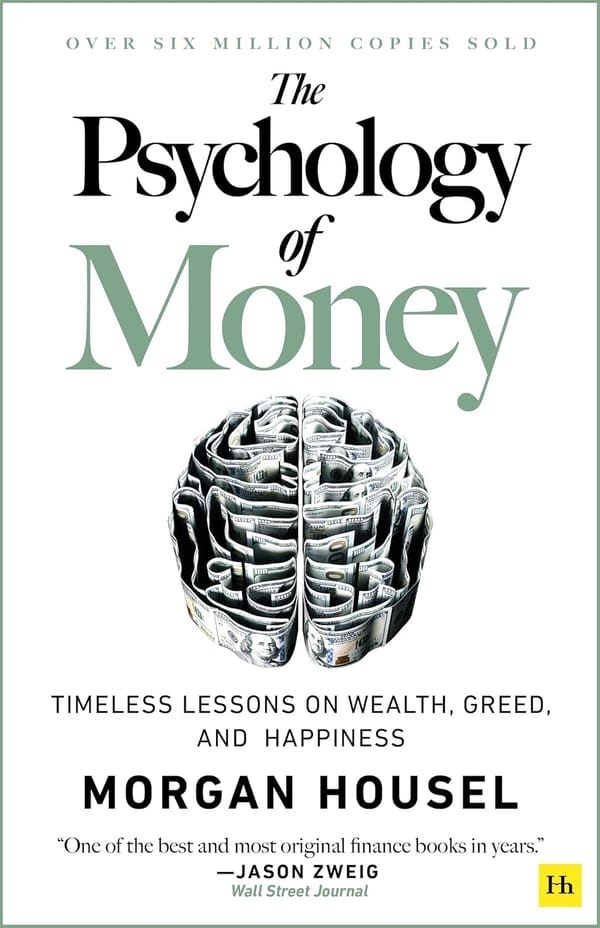I consider myself someone who is reasonably financially responsible, but if you ask what resources I’ve used or books I’ve read to get there I probably wouldn’t have an answer for you😅. That is, until I read The Psychology of Money by Morgan Housel. This book was my first attempt at putting the ‘literate’ into financially literate, and I found it to be a great starting point that changed the way I view money.
Here are some of my takeaways:
- There is no gatekeeping of financial knowledge. The first thing to realize is that the bar to better understanding our finances is ridiculously low. There are tons of articles on the internet and plenty of videos on YouTube available completely for free 🆓. This book itself cost me $8. Does that mean we can become financial geniuses overnight? No not at all, but there are plenty of easy entry points to getting started🔓.
- Money is not just about math, it’s about psychology too. Like I said, I spent $8 on this book and $8 on the coffee I’m sipping as I write this. The numbers make sense, but did you have a little reaction to my $8 coffee 🤨? That’s the psychology of money! We have so many different emotions regarding money, whether it’s excitement about a new pleasure purchase 😄 or fear about a potential investment falling through 😰. It’s easy to overlook these emotions, but we should realize that they play huge role in our spending habits and overall wellness. While my coffee might seem over the top to some, it’s delicious, makes me happy, and gives me a little kick while I’m being productive☕.
- When it comes to money, we have to be comfortable with both luck AND risk. We can never know with 100% certainty what will happen when we spend money🎲. We could make a small investment that unexpectedly has huge gains or save up for a purchase only to find it’s a big disappointment🤦🏽♂️. We must be comfortable with either of these outcomes, and doing so will enable us to spend our money more judiciously⚖️.
- Compounding is your friend. Albert Einstein once famously said “Compound interest is the eighth wonder of the world”⚡. We don’t need to be math majors to take advantage of the power of compounding interest, and there are many different ways to go about this. Examples include setting up an automation for a certain percentage of your paycheck to go into a savings account each month, or even stopping reading the article right now to move money into your savings account💰! Housel uses the example of the famous investor Warren Buffet to show that the majority of his wealth is not actually due to brilliant investing moves, but rather due to the length of his investments and leveraging compounding interest to enhance his gains📈.
- Money means freedom. I won’t sit here and say “money can’t buy happiness”, but it’s foolish to think there isn’t an association🤔. As Housel points out, money can mean a lot of different things, like working less and spending more time with family and friends or being in a space where we have the financial runway to hold out for a better job🛣️. This underlines the importance of not only saving money, but also knowing how to spend our time once we do.
Understanding money and how to best spend/save it is an exercise in finding what works for you😺. While there are plenty of useful guidelines out there, we all have to find financial habits that we think are reasonable and that we can be consistent with. I think The Psychology of Money is a great read for anyone hoping to gain deeper insights into their financial landscape, even if you don’t want a fancy coffee to read it with 😅!
